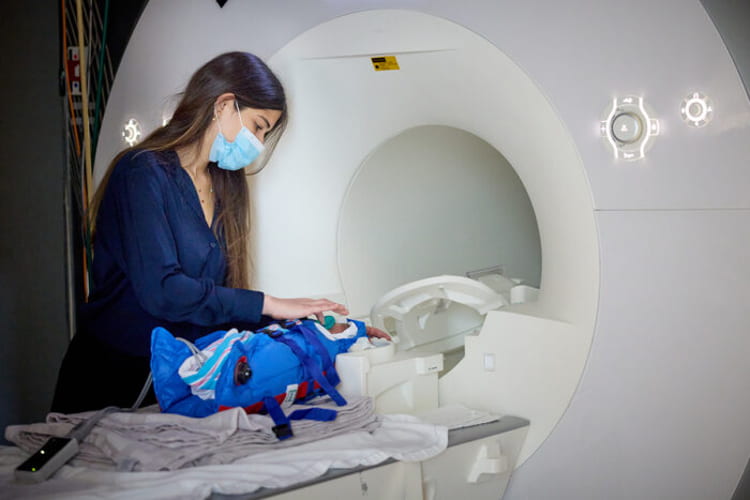Aimed to drive multidisciplinary conversations about the effects of stressors on brain development, consider the impacts on individuals, families and communities, and spur discussions on possible strategies to address.
News
Poverty, crime linked to differences in newborns’ brains
NIH funds Barch research on neurodevelopment
Gift to help SLCH, WashU develop care model to improve kids’ behavioral health
Prenatal, early-life influences on child brain development focus of new study
Persistent, distressing psychotic-like experiences associated with impairment in youth
Publications
Examining the Most Important Risk Factors for Predicting Youth Persistent and Distressing Psychotic-Like Experiences
Karcher, NR, Sotiras A, Niendam TA, Walker EF, Jackson JJ, Barch DM. (2024) Biological Psychiatry: Cognitive Neuroscience and Neuroimaging
Association of maternal fish consumption and ω-3 supplement use during pregnancy with child autism-related outcomes: results from a cohort consortium analysis
Lyall K, Westlake M, Musci RJ, … Bacharier L, Volk H, Ozonoff S, Schmidt R , Simhan H, Kerver JM, Barone C, Fussman C, Paneth N, Elliott M, Ruden D, Porucznik C , Giardino A, Innocenti M, Silver R, Conradt E, Bosquet-Enlow M , Huddleston K, Nguyen R , Trasande L, Swan S, program collaborators for Environmental influences on Child Health Outcomesbz , ECHO Componentsbz , Coordinating Centerbz , Data Analysis Centerbz , Person-Reported Outcomes Corebz , ECHO Awardees and Cohorts. (2024) American Journal of Clinical Nutrition
Prenatal Social Determinants of Health: Narrative review of maternal environments and neonatal brain development
Herzberg MP, Smyser CD. (2024) Pediatric Research
Maternal Prenatal Social Disadvantage and Neonatal Functional Connectivity: Associations With Psychopathology Symptoms at Age 12 Months
Herzberg MP, Nielsen AN, Brady R, Kaplan S, Alexopoulos D, Meyer D, Arora J, Miller JP, Smyser TA, Barch DM, Rogers CE, Warner BB, Smyser CD , Luby JL. (2024) Developmental Psychology
Basic Environmental Supports for Positive Brain and Cognitive Development in the First Year of Life
Luby JL, Herzberg MP, Hoyniak C, Tillman R, Lean RE, Brady R, Triplett R, Alexopoulos D, Loseille D, Smyser T, Rogers CE, Warner B, Smyser CD, Barch DM. (2024) JAMA Pediatrics



